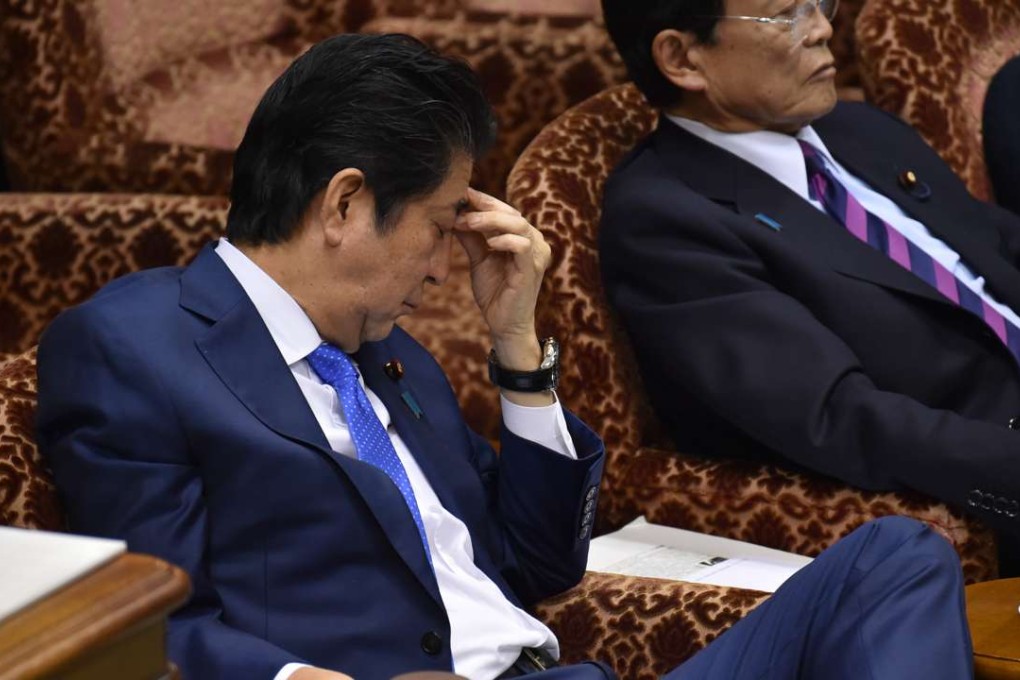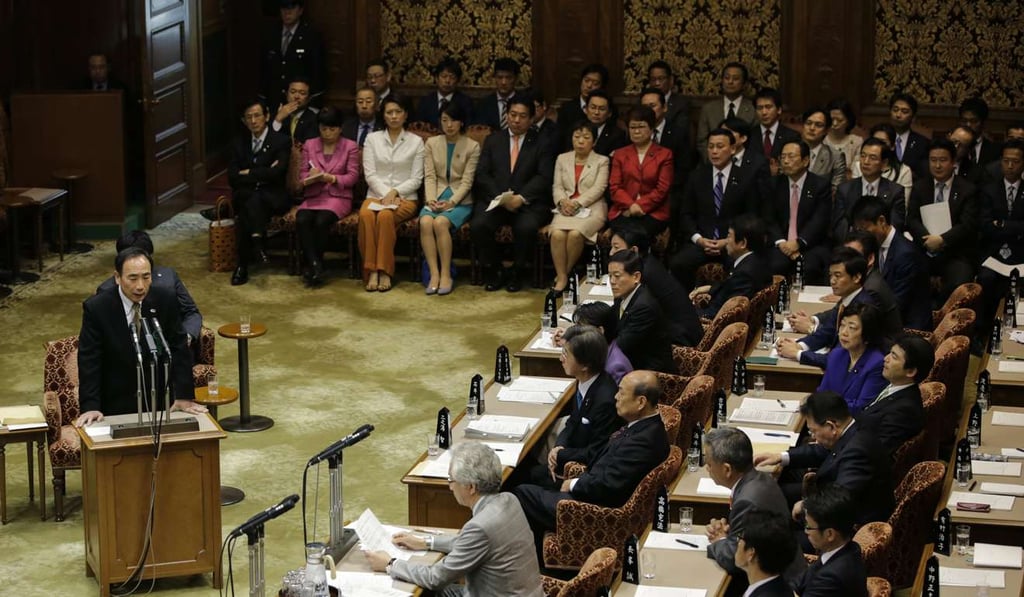What Japan’s Shinzo Abe has to fear from school scandal
As questions mount regarding the Japanese leader’s links to an ultra-nationalist establishment, a once unshakeable administration may need to rethink its political agenda

A thick fog has descended on Japanese Prime Minister Shinzo Abe, threatening to obscure his route to becoming the country’s longest-serving leader, as questions mount over his links to an ultra-nationalist school seemingly stuck in the country’s imperialist past.
The crisis rocking Abe’s previously unshakeable administration relates to claims his wife, Akie, donated 1 million yen (HK$70,000) to the school in 2015 – claims Abe’s critics have seized on to raise doubts over the government’s decision to sell the school state-owned land at a near 90 per cent discount.
Abe himself has raised the stakes by pledging to quit as prime minister and lawmaker if either he or his wife are found to have engaged in wrongful dealings with the school operator, Moritomo Gakuen. Akie, meanwhile, who was to have been the honorary principal of the elementary school (which may now be cancelled completely), has severed her ties with it.

That pressure has grown since the emergence of opinion polls showing Abe’s approval rating has sunk from 66 per cent to 56 per cent – the steepest drop since he returned to power in 2012. Perhaps more worrying for Abe is that polls also show about 80 per cent of Japanese are unconvinced by the government’s explanation of why it sold the land to Moritomo Gakuen so cheaply.
Those explanations have come in for heavy scepticism after the school chief Yasunori Kagoike hinted in an address to parliament that bureaucrats in the Ministry of Finance had offered to make the deal “convenient” for the school.